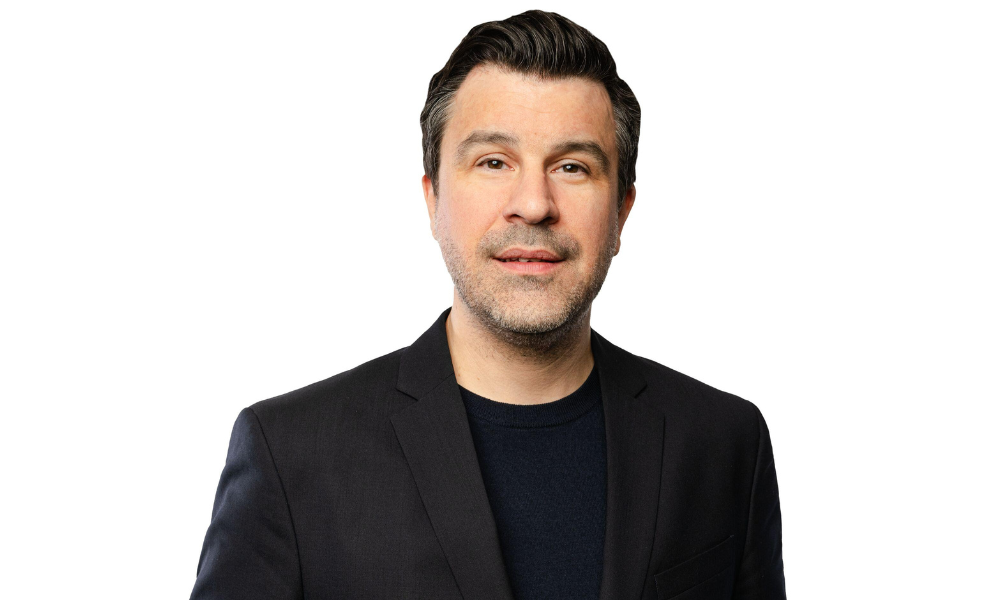
'The employer-employee social contract is very different today,' says HR leader at Gowling WLG

Deon Blyan, national director of people and culture at Gowling WLG, understands better than most the power of a dynamic organizational culture. With just six months under his belt in his current role, Blyan is already implementing initiatives that align with what he calls the ‘culture equation’ – and it’s underpinned by a love knowledge sharing.
Rooted in the insights of Dr. John Izzo's The Purpose Revolution and Ann Rhodes' Built on Values, Blyan references a framework that integrates core values, employee (firm-member) experiences, and organizational purpose to define culture.
"The first [step] in any organization is helping the leadership and the members of that organization see culture as the output, rather than something in itself to be focused on," Blyan explains.
This perspective shifts the focus from culture as an abstract concept to one that is the cumulative result of specific actions, experiences, and purposes within the firm.
And Blyan's culture equation is straightforward: "How we act, plus what we experience, plus why we do what we do, equals culture."
This formula translates into practical components within the organization. Core values shape behaviors, the employment experience defines daily interactions, and the organizational purpose provides the motivational backdrop for these actions.
“At Gowling WLG, we're currently engaged in some projects around igniting our values, articulating culture in a more specific way," Blyan says. “If you ask firm-members here, partners, anybody working to support the firm, you do hear people say that there's something different here. There's something special about the culture. We’re trying to engage everybody firm-wide, to understand a bit more clearly how our core values can be expressed.”
This involves engaging firm members across all seven Canadian offices in conversations and interviews to understand how the core values resonate at every level – the end goal being to bring these values to life in a way that everyone can see and experience in their daily work. And, one innovative approach to achieving this is through multimedia engagement.
"We're engaging with an organization to help us produce some live-action videos, one specifically around our values and another for a welcome-to-the-firm orientation video,” adds Blyan.
Navigating the evolving landscape of employee expectations is another challenge Blyan addresses head-on. The shift from a transactional employment relationship to one that encompasses a broader social contract reflects significant changes in the workplace.
"The employer-employee social contract is very different today," he tells HRD. "Early career generations are interested in well-being, our environmental impact, and how we support diversity, equity, and inclusion. A big part of my role is to help leaders understand that the employee-employer social contract is very different today. I want my leader to have an understanding of diversity, equity, and inclusion. I want my leader to have an understanding of mental health and wellbeing.”
It's hoped this leadership underpins Gowling WLG’s future successes – especially where talent pipelines are concerned. In today’s competitive candidate market, building internal talent streams and upskilling future leaders will differentiate firms that will succeed and those that might struggle.
Blyan believes in creating leadership programs that are both theoretical and practical, ensuring that participants can apply what they learn to their real-world challenges.
"Participants need to see how this program and these learning moments apply to helping me do my job better,” he explains. “Theories and concepts are critical because they want to feel those ‘aha’ moments.”
However, leaders also need to know how to implement these ideas in their daily work. This balance is often achieved through cohort-based programs that blend learning with real-world assignments.
"A group of leaders from a diverse cross-section within the business can be a great way to build a cohort," adds Blyan. “From here, you cover a core tenet of adult learning [because] we learn best from each other and from experiences. Leaders participating aren’t just downloading any ‘Jedi knowledge’, - well, there is a bit of that actually - but they're also [honing their] ability to relate to others. It's like adjusting a recipe in the moment. Learning to apply our leadership as a process, not a title, and being fluid in our approach."